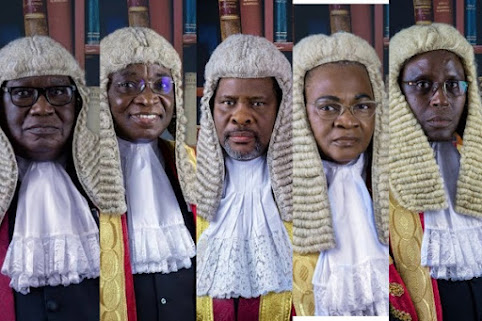By Uzor Maxim Uzoatu
Nigeria is fiction. The country’s Constitution has been transferred to a new shelf in the library: the shelf containing fictional works. The latter-day patriots of Nigeria can cry all they want against me, but in this instance I only choose to stand solidly in solidarity with the words that Samuel Johnson uttered on the evening of April 7, 1775, to wit: “Patriotism is the last refuge of scoundrels.”
There can never be a short supply of toadies and ill-assorted scoundrels defending the many fictions of the government of Nigeria in this new age when former activists and revolutionaries have turned into government spies and informants.








































